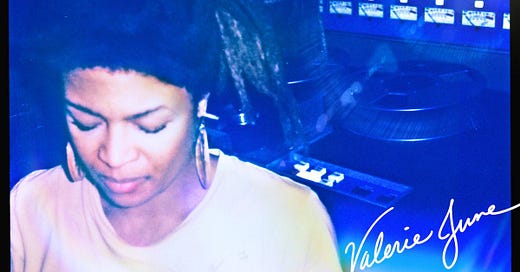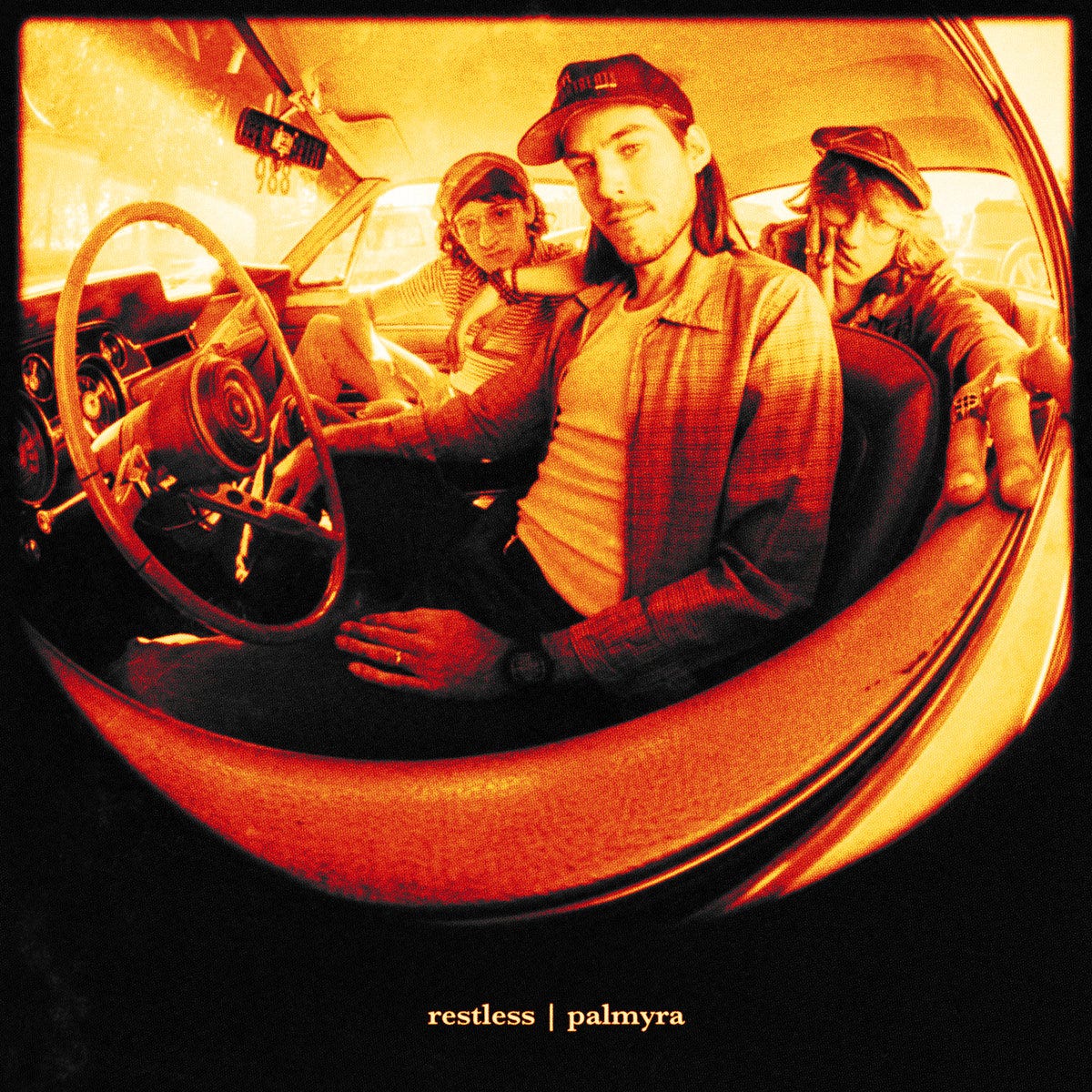Further from Fine
A sublime new album from Valerie June charts a path toward hope and healing, while the roots trio Palmyra brings emo energy to songs of modern malaise.
Valerie June - Owls, Omens, and Oracles
West Tennessean Valerie June has always presented her music as one part of a broader, more holistic journey toward healing and wholeness— and the new album Owls, Omens, and Oracles is no exception. Produced by M. Ward, it’s strange and charming, earthy and mystical— as good as any album she’s made. An excerpt from my FLOOD Magazine review:
What makes June’s version of roots music so appealing is that she views it as fertile ground for imagination, not reverent traditionalism. That means a song like “Changed”—featuring Baptist church organ and the Blind Boys of Alabama as a great cloud of witnesses—can fit seamlessly alongside “Superpower,” a moodier tune featuring trap beats and hypnotic spoken word. “Calling My Spirits,” where June harmonizes with birds and crickets, sounds like an ancient transmission from another astral plane, while the knowing “My Life Is a Country Song” merely sounds as ancient as the Grand Ole Opry.
June is a self-styled healer, and Owls, Omens, and Oracles is presented as an antidote to the rancor and malaise of our present era. “Joy, Joy!” refuses to equate the Black experience with suffering alone, while “Endless Tree” dreams of a world beyond division, where all of us are leaf-bearing branches in some everlasting arbor. The mysticism of that song is mirrored in several others, including “Trust the Path,” which rests in the benevolence of the universe. For some, these spiritual gestures will seem well-intentioned but vague. Not to worry: The love songs tether June to the incarnate particulars of skin and bone. “All I Really Wanna Do” and “Love Me Any Ole Way” revel in sensuality, providing a helpful contrast to more inward-looking songs of resilience, like “Inside Me.”
Valerie June albums increasingly sound like nothing or no one but her, and Owls, Omens, and Oracles conjures her distinct, endearing personality as well as any of them. It won’t fully immunize us to the toxicity of the times, yet simply spending a few minutes in June’s headspace can’t help but feel healing.
Read the whole thing here, and spend some time with the full Valerie June catalog. It’s good for what ails you.
My rating: 8 out of 10.
Palmyra - Restless
All is not well in the world of Palmyra, a folksy trio hailing from Virginia’s Shenandoah Valley. Just listen to some of the lyrics on their debut album, Restless, which brims with youthful malaise. “I’ve never been further from fine,” goes the opening title track— and things just get angstier from there.
Restless is an album of blunt language, acute feelings, and bruising sentiment— all of which is welcome on the heels of Shenandoah, the sepia-toned EP that marked the group’s initial outing and set them up as a kind of traditionalist string band. What they’ve done on Restless is exponentially more exciting and modern, while still maintaining a clear affection for roots music.
You could think of Palmyra as a doggedly earnest emo band that just happens to play acoustic instruments, Jimmy Eat World by way of the Avett Brothers. In her must-read newsletter Don’t Rock the Inbox, critic Marissa Moss offers I’m Wide Awake, It’s Morning-era Bright Eyes as another point of reference.
There’s plenty of the old string band twang on Restless, but just as often the band runs their instruments through distortion pedals and other high-tech effects— creating something far more textured and cinematic than any old-timey revue. Likewise, there are songs that feel based on familiar forms— both “Can’t Slow Down” and “Dishes” move to the steady banjo plunk you’d expect to hear at a barn dance—but just as many that sound like driving indie rock, often building into huge, cathartic crescendos.
The lyrics are both ragged and specific in their conveyance of modern anxieties— not least in “Can’t Slow Down,” about the plight of having an overstimulated mind you can’t seem to shut off. Not for nothing is the album called Restless— Palmyra’s dominant mode is jitteriness— but it could just as easily be called Lonely; that’s the besetting malady in “Palm Readers,” the slow-burn first single.
These inner anxieties congeal into a kind of existentialism— the narrator in “No Receipt” expresses solidarity with defective products that are outside the window for returns, a sadsack metaphor that captures Palmyra’s disconsolate spirit. But it’s not just inward navel-gazing; the group’s existentialism leads to an open dialogue with the Creator. In “Palm Readers,” the narrator spends their entire lunch break pacing and talking to God— and it’s fair to assume the conversation is tense.
The malaise in these lyrics reaches a fever pitch in “Shape I’m In,” the album’s most explosive number. Written to make sense of a host of mental health struggles— a bipolar diagnosis, gender dysphoria— the song’s curdled self-loathing spills over into divine discontent. “Tell your God I’ve not forgotten how he made me,” the chorus snarls. “I’m sorry for my face/ I’m sorry for the shape I’m in.”
Perhaps it all sounds dour, but the achievement of Restless is that even its most depressive moments feel visceral, cathartic. “Shape I’m In” may scan like bloodletting on paper, but its swell of strings and echos is symphonic, its skyscraping chorus operatic— the kind of arena-swelling fervor you might associate with Arcade Fire.
Palmyra may have the trappings of traditionalism, but with Restless they’ve made an opus of contemporary alienation that’s all too painfully alive.
My rating: 7.5 out of 10.
Other rooted and restless favorites:






